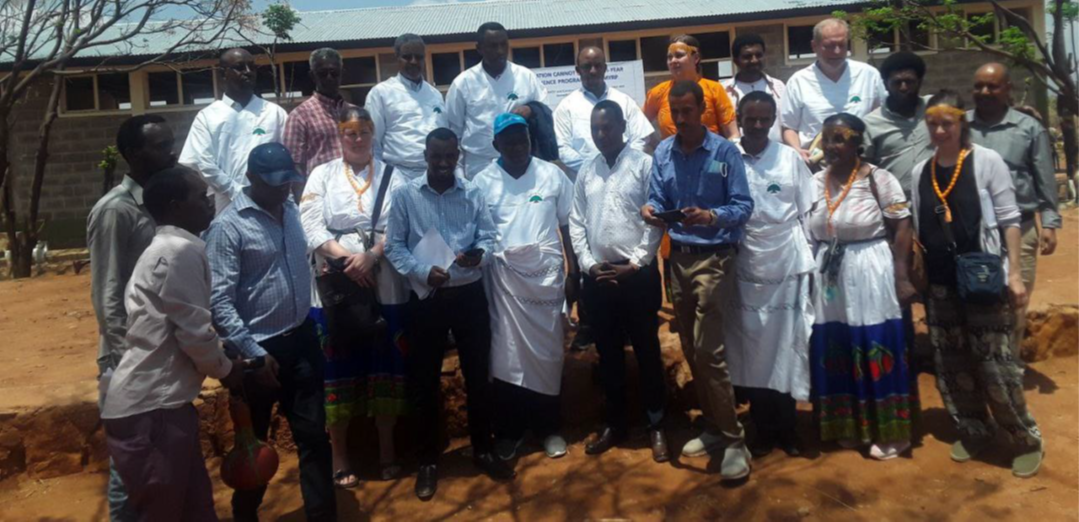This website uses cookies so that we can provide you with the best user experience possible. Cookie information is stored in your browser and performs functions such as recognising you when you return to our website and helping our team to understand which sections of the website you find most interesting and useful.
Geneva Global is part of Global Impact Ventures

Education Inititives > education articles
Representatives from the Finnish and Norwegian Embassies Visit Speed School Program in Oromia
“The Speed School classes are vibrant and lively. The children clearly learn with great enthusiasm. The facilitators are passionate, the condensed curriculum is well crafted, and the methodology is engaging.”
Through the Multi-Year Resilience Project (MYRP), Education Cannot Wait provides multi-year support and funding to governments, donors, civil society organizations, and others in international development to ensure access to education during and following emergencies and crises. In 2021, UNICEF selected Geneva Global Ethiopia to implement the three-year pilot MYRP in the country’s Oromia region. The dual aim was to construct and operate pre-primary and primary conventional and accelerated education classes for children whose families were recently returned from internal displacement due to conflict.
From April 11 to April 13, 2022, three representatives from the Norwegian Embassy and two from the Finnish Embassy visited MYRP classes that Geneva Global Ethiopia are operating with its consortium partners in the region. Accompanied by Dr. Bultosa Hirko, the Oromia Regional Education Bureau Deputy Director, the visitors observed classrooms and mothers’ income-generating activities associated with Geneva Global’s Speed School model. Speed School is an accelerated education program that Geneva Global has operated in Ethiopia since 2011 to bring out-of-school children aged 8 to 14 into formal education with the skills and motivation to excel there.
The visitors expressed keen excitement for the program. While visiting classes and speaking with children, facilitators, primary school teachers, and school directors, they observed and learned about the use and impacts of the student-centered, activity-based learning methods that are core to the model. With the Speed School facilitators and conventional primary school teachers, the visitors discussed the ongoing training efforts of Geneva Global Ethiopia and its local partners to improve classroom management, educator competencies, and student learning. The collaboration and exchange of ideas between facilitators and primary school teachers impressed the visitors greatly, appreciating their dynamic adoption of the Speed School pedagogic methods.
One visitor remarked that, “The Speed School classes are vibrant and lively. The children clearly learn with great enthusiasm. The facilitators are passionate, the condensed curriculum is well crafted, and the methodology is engaging.” The visitors asserted their confidence that the adoption of the Speed School model in government primary schools will further promote the accessibility of accelerated education for out-of-school children.
The donors also visited some of the pre-primary classes that Geneva Global and its partners are operating with the Education Cannot Wait funding. The O-classes allow children aged five to six years old the opportunity to start to become literate and numerate while socializing through play-based learning approaches inside and outside the classroom and cultivating skills and excitement for school.
The visitors expressed admiration equally for the attention to gender equality. In Speed School classes, girls are not just enrolled in high numbers, but they attend regularly, participate actively, are learning well, and serve in leadership roles. The role that the mothers of the Speed School students play in supporting their children’s learning, both at home and in the classroom, also attracted the visitors’ attention. Having recently visited similar IDP (internally displaced persons) camps in the Somali region, the visitors commented that the level of engagement by girls and women in, respectively, the Oromia IDP classes and Self-Help Groups was both surprising and impressive.
The delegation also learned about the Speed School mothers’ Self-Help Groups (SHGs), a second component of the core Speed School model. Self-Help Groups provide the mothers of all Speed School students an opportunity to become functionally and financially literate and to supplement household earnings through income-generating activities and group savings initiatives. Particular to the Education Cannot Wait project, SHG mothers also participate directly in the operation of a school feeding program, allowing their children to remain attentive in their learning all day long.
The visit proved meaningful for all involved. The visitors left extremely encouraged by the progress of MYRP in Oromia, and particularly by the Speed School classes. They believed that their investment in the program has spurred the change they had intended. The visitors were eager to share their observations with the Oromia Regional Education Bureau and the Ethiopian government, to advocate for continued and increased comprehensive support to the children, mothers, facilitators, and all involved in the Speed School Program. While a future visit has not been scheduled, the Oromia Region Speed Schools, O-classes, and Self-Help Groups are excited to host these and other visitors in the future.
